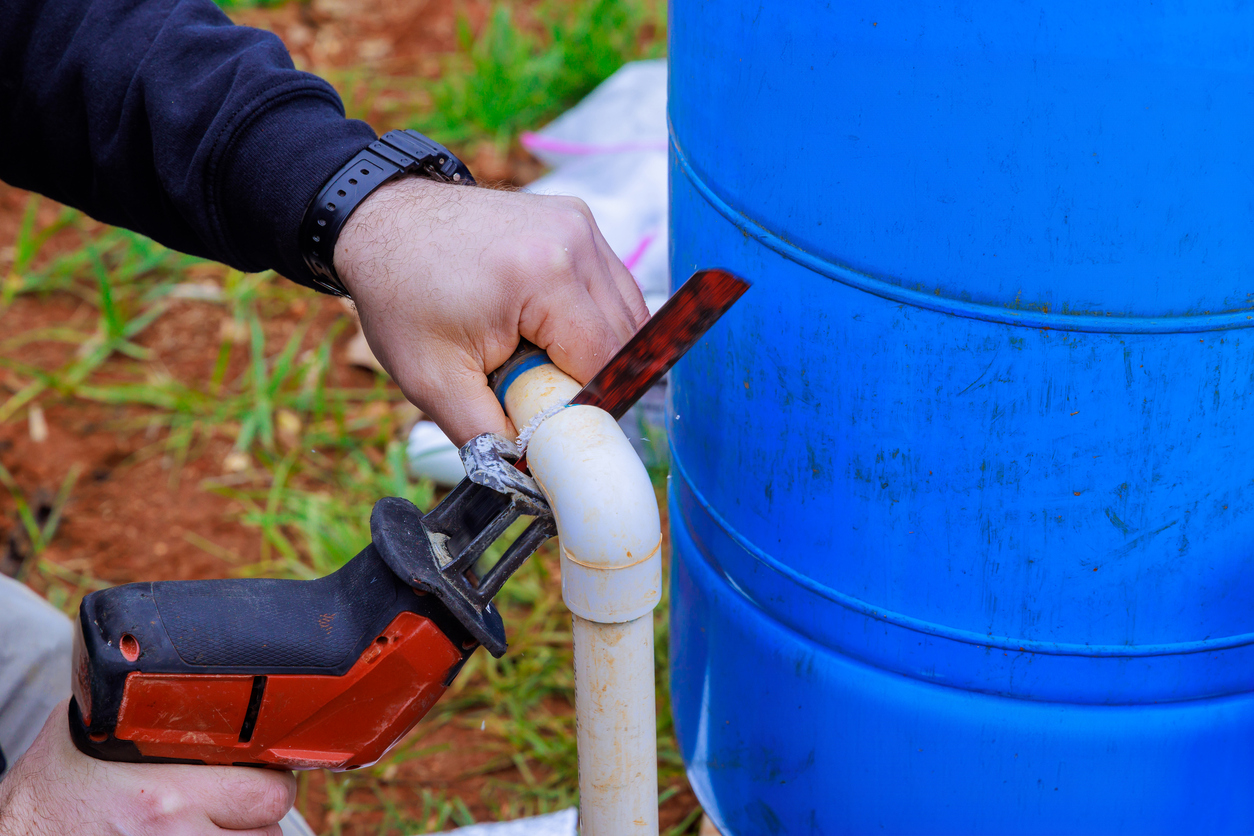Does a Home Inspection Include a Well Water Inspection?

Does a Home Inspection Include a Well Water Inspection?
Buying a new home is stressful, yet filled with possibilities. In the turbulent housing market, having your offer accepted is a milestone. Most likely, you’re concerned about getting the most value which leads to apprehension during the home-buying and moving process. While home buying is a journey filled with ups and downs, it is extremely rewarding. As part of the home buying process, most potential homeowners know about the home inspection. Whether binding or not, having a home inspection is critical to know the structural foundation of the house and flag any warning signs about the infrastructure that may need immediate attention. However, a home inspection may not cover every core component of the property. For example, for homes that rely on well water, the typical inspection does not include an analysis of the well or water filtration system. Likewise, for homes with a septic system, then depending on your location, this inspection may not be required either. Yet, safe, clean water is vital to living a healthy life and enjoying your new home. To help, the following highlights the importance of a well water inspection, along with septic and other systems that may not be covered with a general walkthrough to ensure a smooth transition to your new home.
What is a Well Water & Water Filtration System Inspection?
If your home relies on well water (vs municipal water), then a traditional home inspection will not review these systems. A well water inspection, along with a water filtration system review, assesses the safety, quality and quantity of the well water, along with the overall condition and functionality of the well system itself. In a nutshell, well water inspections provide insight into the water quality and examine the key components, such as:
- Well casing and seals
- Pump and mechanical components
- Pressure tank
- Wellhead and the surrounding area
- Plumbing and water treatment equipment
Unlike the standard home inspection, generally well water inspections (and water filtration system inspections) are not universally required. For example, in Massachusetts and Connecticut, there is no state-wide requirement for well or water testing when selling a home. However, local boards of health have the authority to establish regulations for private wells, including testing requirements. Additionally, for any home with an existing water filtration system, it is important to have a professional inspection to ensure the quality of the water.
In a well water inspection, a qualified water technician generally reviews the well components, along with taking a water sample for lab analysis, testing the water flow and pressure, and reviewing the well permit (if available). Upon completion of the inspection, buyers have peace of mind that the water supply is safe for consumption or identified potential issues (which is also critical of a water filtration system). As a prospective buyer, understanding the quality of water is vital to a purchasing decision. If there are safety issues, then a well water inspection allows for further negotiation with the seller or simply informs you of the risks with the home.
What is a Home Inspection?
A home inspection provides buyers with a comprehensive examination of a property’s structure and systems. According to Nationwide the main goal is to assess the overall condition of the home, identify any safety issues, and uncover potential problems that could affect the property’s value or require costly repairs. Depending on your local regulations, a home inspection may or may not be required, but housing experts generally recommend it is conducted to uncover any underlying issues (and provide some peace of mind). Home inspections are visual and typically examine various components of the house, including:
- Exterior (foundation, roof, siding)
- Interior (walls, floors, ceilings)
- Plumbing systems
- Electrical systems
- HVAC (heating, ventilation, and air conditioning)
- Fire safety features
- Structural elements
Ultimately, for buyers, an inspection provides crucial information about the property’s condition, helping them make an informed decision. For sellers, a pre-listing inspection can identify issues to address before putting the home on the market.
Finally, while buyers generally know the value of home inspections, they may not be aware that they are not exhaustive and do have some limitations. For example, inspectors are generally not allowed to damage the property, inspect inaccessible areas, or offer services beyond the inspection itself, so they likely will not cover specialized systems like wells or other specialized components such as pools and septic systems or diagnose the causes of problems they identify.
What is Septic Inspection?
What a home inspection achieves for the house and property, a septic inspection tackles for this specialized system. A septic inspection examines the system to assess the overall condition and functionality of the septic system, identify any issues, and ensure compliance with local regulations. In addition to a visual inspection that checks the age, maintenance history and visible components, septic evaluations can also provide a full inspection. With a full inspection, the system is thoroughly examined, which includes opening the tank, checking water levels, and testing water flow. An effective septic inspection generally examines the following components of the system:
- Septic tank
- Distribution box
- Drainage or leach field
- Plumbing connections
- Electrical components (if applicable)
If a prospective home is not connected to public sewers, then a septic system inspection is vital to understand its strength. After all, problems with the septic are one of the more costly repairs, so any immediate issues upon moving into a new property might cause major strain on family budgets and savings. As a result, buyers should engage a licensed and certified septic company to conduct the inspection.
Additionally, in certain locations, such as Massachusetts, septic inspections (known as Title 5 inspections) are mandatory. Conversely, residents in Connecticut who rely on septic systems may not be required to conduct an inspection, but housing experts, like Redfin, recommend it is completed because it provides crucial information about the system’s condition and potential future costs, helping you make an informed decision about your purchase.
What are Other Important Types of Home Inspections?
While the general home inspection does not cover every aspect of a home in crucial detail, it should provide insight into areas that need a specialist to examine. For example, septic and well water inspections are important systems that have costly ramifications if they are not kept updated and maintained. In addition, depending on the property, there are a few other secondary inspections to consider when buying a new home.
- Pest Inspection: Highlights warning signs of pest infestations, such as termites, rodents, or wood-destroying insects, which can cause significant damage to the property.
- Radon Testing: Found in both water and air, radon is a naturally occurring radioactive gas that can seep into homes and pose health risks. Both air and water require different tests to accurately measure radon levels to ensure they are within safe limits. For well water inspections, ask about testing for radon in the water too.
- Mold Inspection: Mold can be a health hazard and indicate moisture problems within the home, so an inspection identifies areas prone to mold growth and assesses any existing mold issues.
- Lead-Based Paint Inspection: Prior to 1978, homes may contain lead paint, so an inspection checks for the presence of lead-based paint and recommends remediation if necessary. Many local jurisdictions require confirmation from the seller that they are not aware of lead paint, but for older homes, it may be helpful to verify the attestation.
How can Aqua Pump Co. Help?
As a family-owned business, we are committed to helping our customers and neighbors have access to safe, clean water. Our experienced and expert team regularly attends industry trade shows and seminars to remain up-to-date on the latest advancements in well water technology. For prospective home buyers (or sellers) looking to understand the quality of the water supply, then Aqua Pump Co. can perform well inspections, along with ensuring any water filtration system produces safe water and test for radon in the water supply. We can help provide peace of mind that your new home has clean water for you and your family. Additionally, as our team learns about your system, we can make personalized recommendations during routine well maintenance visits to improve the efficiency and longevity of your system.
If you need help ensuring the quality of your well water, then our team has the solutions for residents (and businesses) in Connecticut and parts of western Massachusetts. For more, contact us today!


